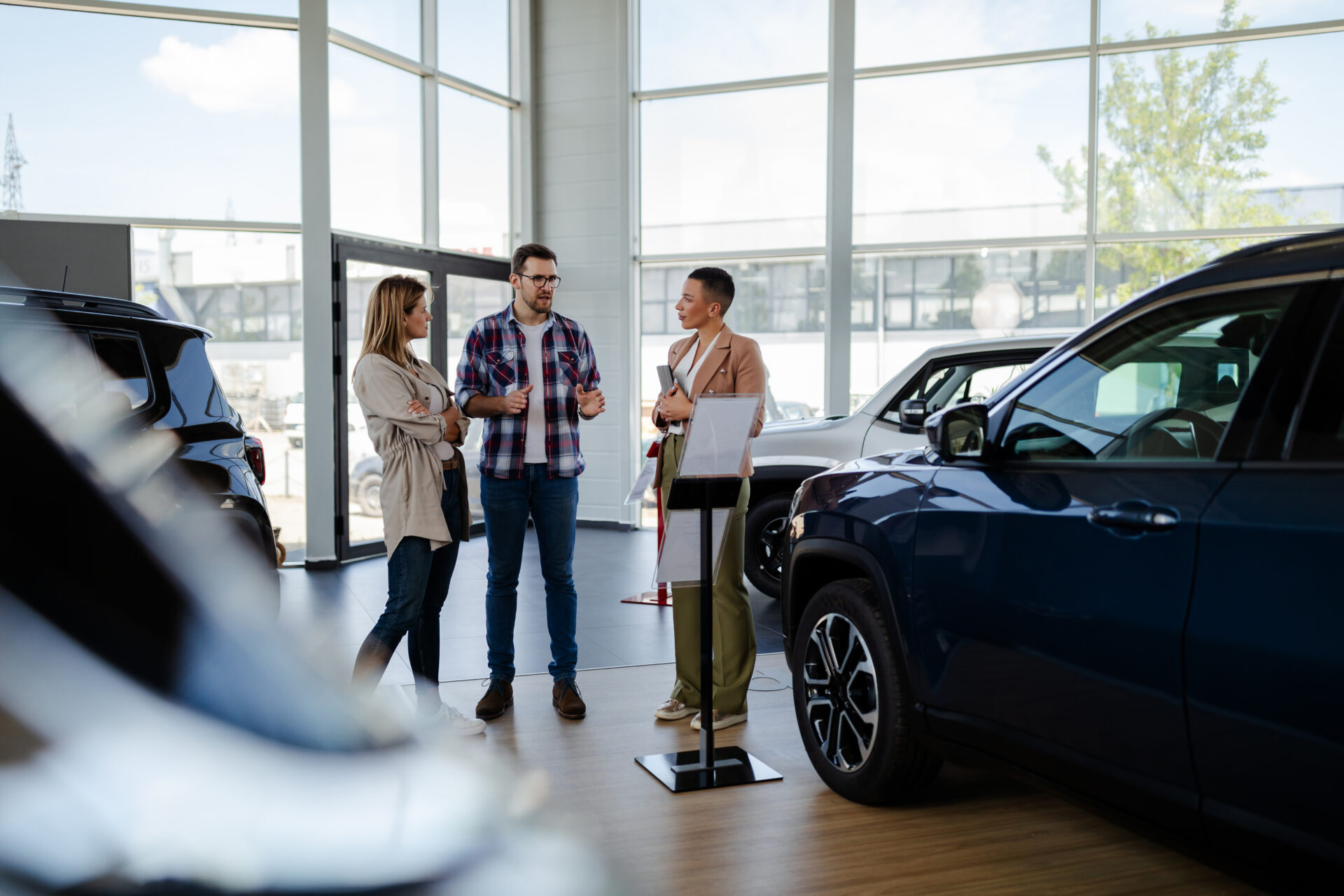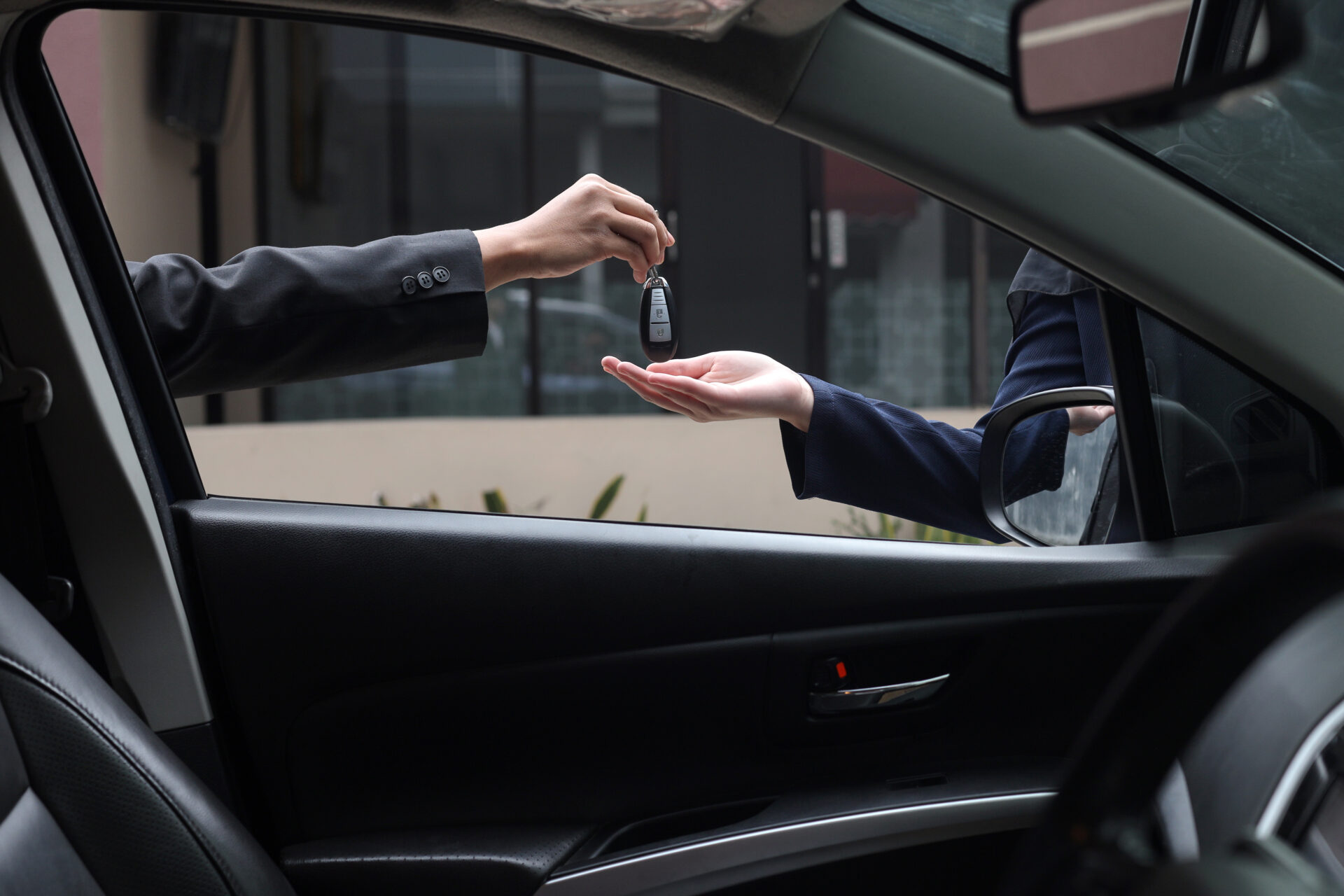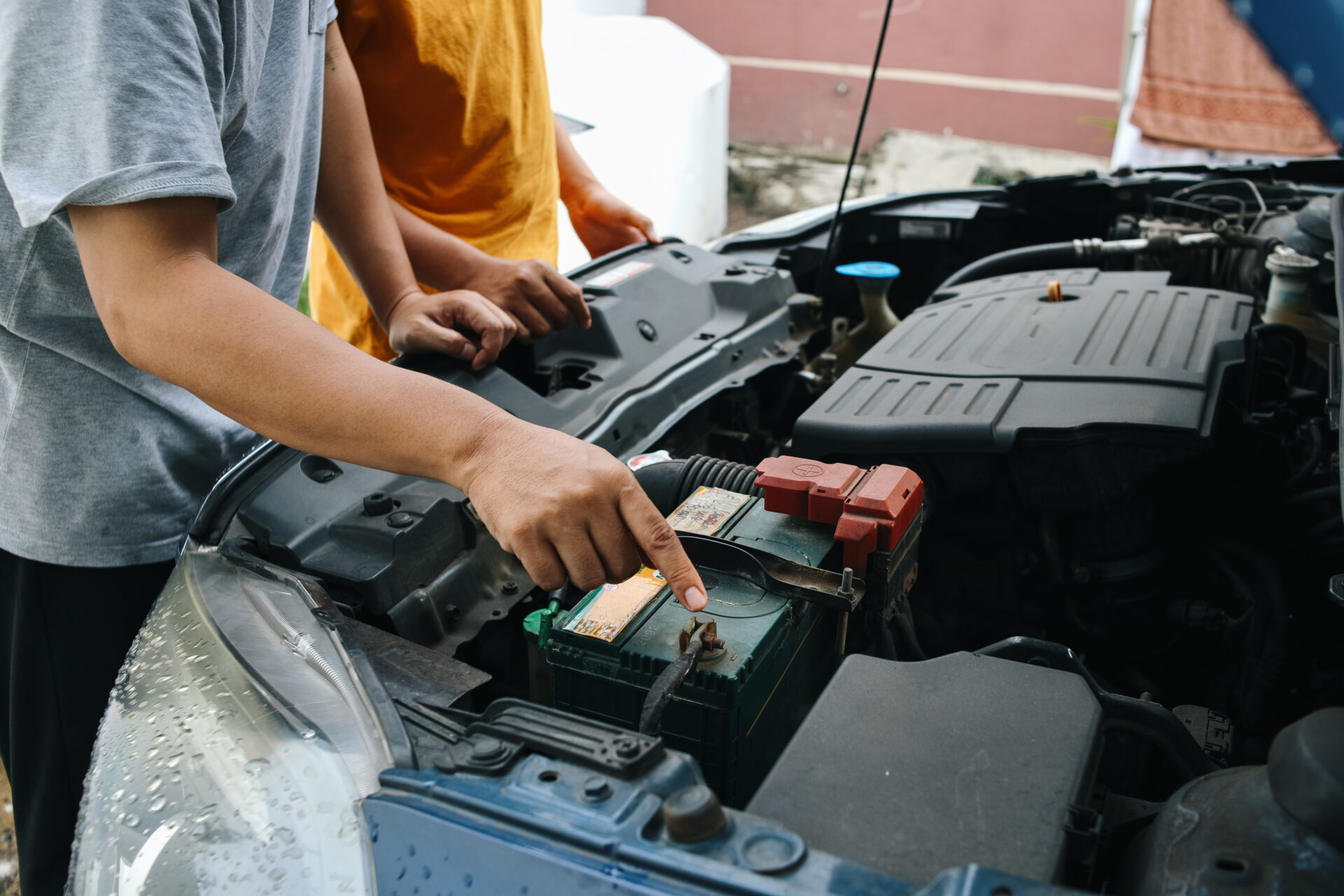
(Approx: 5 min read)
When it’s time to move on from their current vehicle, drivers face a crucial decision: Part exchange at a dealership, or sell privately?
It’s important to note at the outset that both options have their merits and their drawbacks. The right choice depends on your priorities – whether that’s convenience, speed and maximising your financial return… or simply maintaining control over the process.
This comprehensive guide explores the pros and cons of both routes, helping you to make an informed choice. You’ll also find clear comparisons below for quick reference.

Key facts at a glance:
- When selling your car, you can either part exchange it at a dealership or sell it on privately; each has distinct advantages and disadvantages.
- Part exchanging is the process of trading your car in to a dealer, who will deduct its value from your new purchase. This is fast and convenient, often completed in a single visit. The dealer handles all paperwork and can settle any outstanding finance.
- However, a downside of part exchange is that you’ll typically get a lower price than selling privately and have more limited negotiating power.
- Alternatively, selling your vehicle privately involves advertising, negotiating and generally managing the sale of your vehicle yourself. This can (and often does) yield a higher sales price, allows you full control and can help you reach enthusiasts or specialist buyers.
- The main drawback of selling privately is that it’s time-consuming, requires more effort from you as the seller and could take longer to complete a sale.
- Part exchange is best for those seeking a quick, simple transaction and those less concerned with maximising sale price. Private sales work better for those willing to invest time and effort to achieve a higher sales price or for those selling unusual or specialist vehicles.
- So, the key questions sellers need to answer before they begin the sales process are: Do you want convenience or maximum sales value? Are you comfortable dealing with listings, paperwork and potential buyers yourself? How fast do you need to sell?…and Do you have outstanding finance to settle?
Part exchange offers speed and ease but normally less money; selling privately requires more effort but can yield a higher price. The right choice depends on your situation, priorities and willingness to invest time and effort.
Understanding both options:
Part exchange.
Part exchanging means trading in your current car at a dealership as part of the transaction for the next vehicle you intend to buy from that same dealership.
The dealer in question values your car and deducts that amount from the price of your new purchase. This allows you to drive in with your old car and leave with your new one, often on the same day.

Selling privately.
Selling privately involves advertising your car yourself on a site such as AutoTrader, eBay or similar, negotiating with individual buyers and handling all aspects of the sale yourself.
Although it can take longer than part-ex and often requires more effort, the private-sale method can (and often does) yield a higher sale price for the seller at the end of the process.

Pros and cons of part exchanging your car:

Pros:
- Extremely convenient
- Fast process
- Dealer handles paperwork
- No need to advertise
- Settle outstanding finance
- Part exchange for new vehicle
- Minimal stress and hassle
- Buy and sell simultaneously

Cons:
- Lower sale price
- Less control
- Limited negotiation power
- Less value transparency
- Automated valuation tools
- Not all vehicles suitable
- Condition vital
- Potential for negative equity
Pros and cons of selling your car privately:

Pros:
- Probable higher sale price
- Full control
- No dealer fees
- Negotiate directly
- Flexibility to sell rare/classics
- Opportunity to add value
- Leverage car clubs/enthusiasts

Cons:
- Time-consuming
- Requires car prep and listings
- Risk of scams/fraud
- Potential for long waiting periods
- Must handle all paperwork
- Responsible for securing payment
- Time-wasters/no-shows
Part exchange – when convenience is king:
Part exchanging is the go-to option for vehicle sellers who value a seamless, hassle-free experience. You avoid the stress of advertising, fielding calls and negotiating with strangers.
The process is straightforward: the dealer inspects your car, makes an offer and – if you accept – deducts the value from your next purchase. This is particularly attractive if you have outstanding finance, as the dealer can settle it as part of the transaction.
However, like with most things, convenience comes at a cost. Dealers will typically offer you less than the private market value because they need to resell your car at a profit. You also lose the ability to negotiate strongly, and the valuation process can feel a little less transparent. If your car has cosmetic issues, expect the offer to be reduced further.
Part exchange is best for:

Sellers who want a quick, simple transaction.

Sellers looking to buy and sell in one visit.

Sellers with outstanding finance who want a one-stop solution.
Selling privately – maximising your return:
If your goal is to get the highest possible price for your vehicle, selling privately is usually the best route. You set the price, negotiate directly and keep the full proceeds. This is especially worthwhile for newer, well-maintained or specialist vehicles, where private buyers may pay a premium.
The downside is the effort involved. You’ll need to prepare your car, take quality photos, write compelling listings and handle all communications around the sale yourself. This will include arranging viewings, negotiating price and managing paperwork. There’s also a risk of scams, so you must be vigilant with payments and documentation.
Private sales are best for:

Sellers willing/able to invest time and effort.

Sellers with rare, high-value or enthusiast vehicles.

Sellers seeking to maximise sale price.
Other things to consider when making your choice:
- Timing: Prices on the second-hand car market fluctuate. Dealers are skilled at timing part-exchange purchases to their advantage, which may well affect the offer you receive. Private sales can also be affected by seasonality and demand. The private market will generally pay less for a convertible in winter, for example.
- Vehicle condition: Both sales methods require your car to be in tip-top condition to achieve the best price. Dealers may well be stricter on the condition of engine and bodywork, as they need to sell the vehicle on quickly at a profit.
- Outstanding finance: Both sales routes can work for vehicles with outstanding finance, but part exchange sales will usually accommodate these more quickly and easily.
- Paperwork: Dealers will handle all of the paperwork for a part exchange deal. Private sellers will need to take care of this themselves.

So, which option is right for you?
Before deciding on a method of sale, ask yourself:
- Do I want maximum convenience or maximum sales price?
- Am I comfortable dealing with vehicle photos, ads, buyers and paperwork?
- How quickly do I need to sell?
- Is my car likely to appeal to private buyers – is it particularly well maintained, rare or likely to appeal to enthusiasts?
- Do I have outstanding finance to settle?
If you prioritise speed and simplicity, part exchange is likely the better choice. If you’re willing to put in the work for a greater financial reward, selling privately is the way to go.
Beware of scams when selling your vehicle:
Car selling scams in the UK have become alarmingly sophisticated in recent years, with fraudsters employing tactics ranging from overpayment scams to mechanical sabotage.
One notorious method is the ‘dirty oil trick”, where scammers distract the seller and pour oil into the engine coolant, making it appear as if the car has a serious fault and then demand a steep discount.
Overpayment scams are also common; here, a buyer sends more money than agreed – often via cheque or suspicious bank transfer – and then requests the seller to refund the excess. These payments tend to be fraudulent, leaving the seller without both their car and money.

Fake buyers may also request sensitive information or insist on alternative payment arrangements, increasing the risk of identity theft or loss.
To avoid falling victim to such scams, always meet potential buyers in person and bring a friend or family member for added security. Never allow buyers unsupervised access to your vehicle and document its condition with photos or videos before any viewing.
Insist on secure payment methods – never release the car or its documents until full, cleared payment is in your account – and be wary of any request for a refund of ‘overpaid’ funds or payment via untraceable means. Research the buyer if possible and report suspicious activity to the authorities.
Trust your instincts; if a deal feels rushed or too good to be true, it’s best to walk away.
Protect your next car with an extended warranty:
Whichever way you choose to sell your current vehicle, protect your next one with an extended warranty. It’s a way to shield yourself from big repair bills, especially as your latest second-hand car gets older (the average age of cars in the UK in 2025 is now over 10 years). It usually protects against the cost of fixing major parts like the engine, gearbox or electronics if they break down.
Many warranties also include emergency breakdown assistance, so if you break down, help is just a phone call away. This aims to provide drivers with peace of mind as they’ll know more clearly what their biggest costs are each year, making it easier to budget.
Conclusion:
Both part exchanging and selling privately have their place in the car market. Part exchange offers speed, convenience, and minimal hassle, but usually at a lower price. Selling privately demands more effort and patience but can yield a higher return.
Ultimately, the right choice depends on your personal circumstances, priorities, and how much time and effort you’re willing to invest in the process.
Discover more.
Further Warrantywise articles you might find useful…

Self-funding your car repairs vs investing in a car warranty .
Time to read: 5 mins Key Points Did you know that as many as 16% of UK adults (about 8.4 … Continued

How an extended warranty can help with the resale of your car.
Average read time: 3 minutes September marks the release of the new ‘75 plate car registration, and many drivers will … Continued

Top 10 most reliable car models 2025.
(Approx: 3min read) In an age where automotive innovation is accelerating faster than ever, reliability remains paramount for UK used … Continued